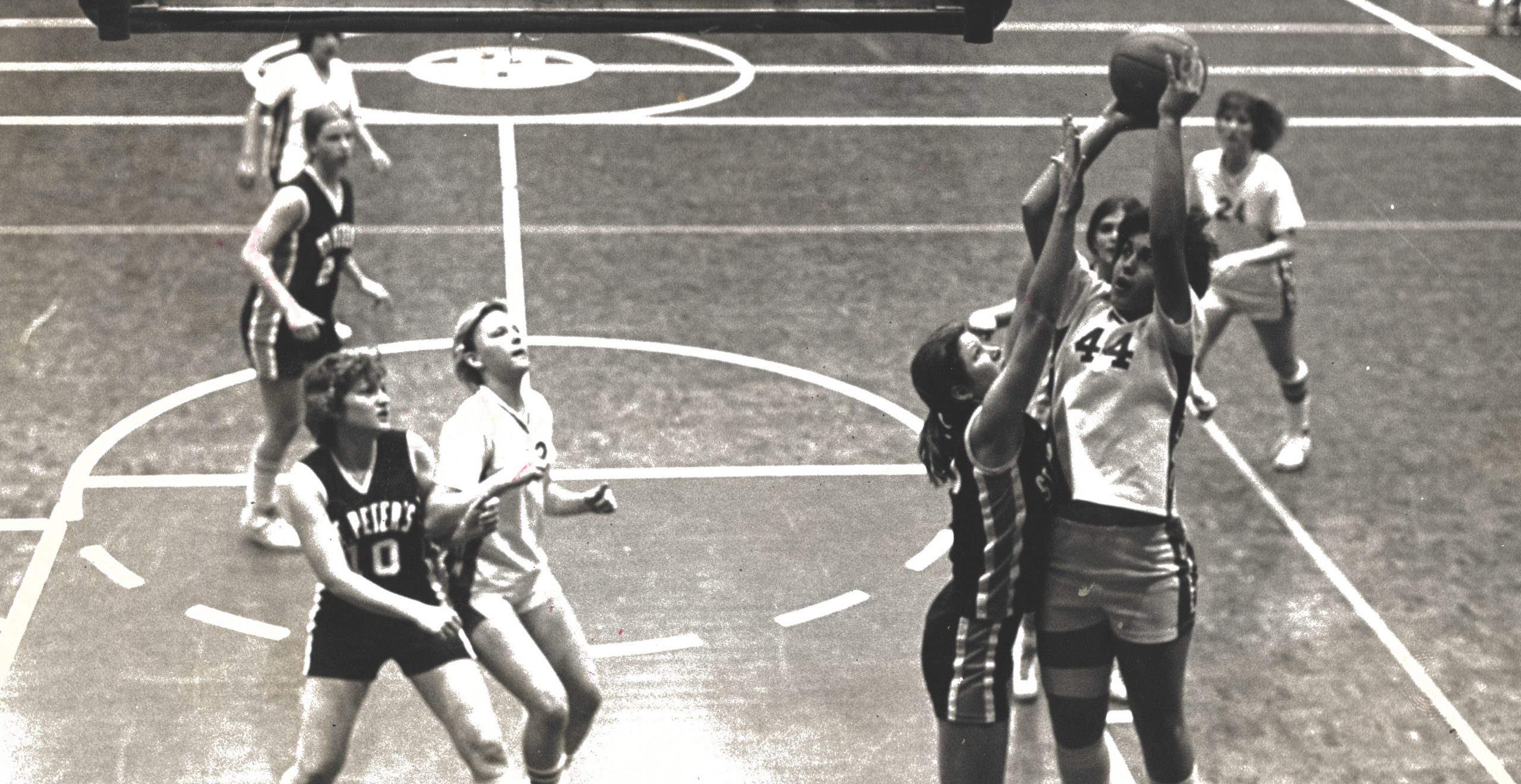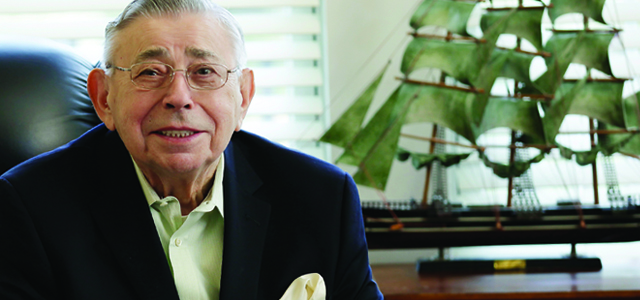By Shawn Fury
The stands of Walsh Gymnasium are full as the Seton Hall women’s basketball team battles a ranked opponent in the NCAA Tournament. Fans follow the exploits of a Pirate softball player setting home run records. Seton Hall’s star soccer player becomes one of the most prolific scorers in college history. Sports change the lives of thousands of women, creating memories and connections that last forever.
Title IX made all these events possible. The historic anti-discrimination law that led to the creation and advancement of women’s sports programs across the country was enacted 50 years ago, and its effects are felt every day.
No one appreciates Title IX’s impact more than Sue Dilley Regan, Seton Hall’s first women’s basketball coach who became the University’s first female athletic administrator, working in jobs that included director of athletics. Her coaching gig paid $500 while her main job was as assistant director of recreation. The women practiced at 6 in the morning or 8 at night, with Regan keeping the team’s basketballs in the trunk of her car. “There were a lot of things that certainly didn’t make it easy,” she says. “We never had as much money as anybody else, but it was a very tight-knit group, with a lot of help all the way around. Everybody helped each other out.”
Years later, when the 1994 women’s basketball squad went 27-5, Regan watched in Walsh Gymnasium as Seton Hall defeated Texas in the second round of the NCAA tourney, marveling at how far the program had come. “The place was just packed,” Regan says. “I remember standing up in a corner and the pride, everything, just swells in you at moments like that.”
Basketball and fencing were the first two varsity female sports at Seton Hall, and the school gradually added programs. The list of iconic athletes includes track and field stars like Keisha Caine ’95 and Flirtisha Harris ’94. A nine-time All-American, Caine won a pair of 4×4 relay NCAA titles while Harris brought home four NCAA individual or relay titles, including 400-meter victories at the 1994 Indoor and Outdoor NCAA Championships.
Former Pirate soccer superstar Kelly Smith scored an incredible 76 goals and 174 points in 51 matches. Softball standout Laura Taylor ’05 slugged 59 career home runs while leading Seton Hall to consecutive BIG EAST Tournament titles. The 1990 volleyball team finished 27-11, led by superb setter Casie Alexander ’94, who totaled 416 career service aces, the most in NCAA history at that point. In 2015, the women’s basketball team won a school record 28 games and the BIG EAST title. And on it goes.
The legacies of the women’s programs started with standouts like Robin Cunningham ’78, who played for Regan on the early basketball teams. The first woman to receive an athletic scholarship at the school, she also became the first woman in program history to score 1,000 points. She also competed in softball and tennis.
The Westfield, New Jersey, native’s journey started when the mother of a high school teammate talked to her at a game and said she’d seen Seton Hall President Monsignor Thomas Fahy on TV talking about Title IX’s passage a few years earlier and “how Seton Hall was going to start offering athletic scholarships to women the next year. Honestly that’s the first I ever heard about it.” Cunningham wrote a letter to Regan inquiring about scholarships, and she eventually made history, receiving a partial one that later turned into full tuition, though she still paid for housing.
Five decades later, Cunningham savors those chances that were unavailable to previous generations. “I was blessed. I guess I had some talent, but I also just had really good timing. … Sometimes I would finish tennis practice later in October, and then I would run to the gym and have basketball practice on the same day. And then we’re still playing basketball in late February, March, and I’d go to softball practice. We had a blast, it was a wonderful time.”
Cunningham says she “never felt any discrimination or negativity, but the reality of it was nobody came to our games.” The competition itself provided the energy and joy. Over time, fan support grew. Programs matured. Opportunities expanded.
Title IX changed everything, as did the adminis-trators, coaches and athletes who created all that followed.
“On a day-to-day basis we were just doing our jobs,” Regan says, “figuring out schedules, practicing, traveling, recruiting. But by the same token, we were a part of these regional and national associations that were governing women’s programs at the time. … We did know we were doing something special, something that needed to be done and had never been done before.”
Share your favorite memories of Seton Hall University women’s sports to shuwriter@shu.edu.







